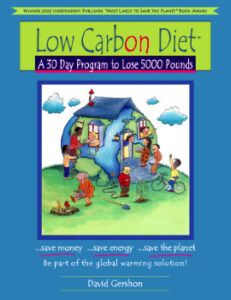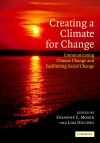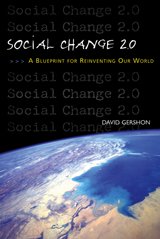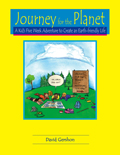COOL COMMUNITY CAMPAIGN
An Education and Outreach Program for Local Governments and Community Organizations Empowering Citizens to Reduce Their Carbon Footprint

“Low Carbon Diet is a very effective program for helping people achieve real and lasting carbon reduction at the household level. We gave a copy to each person who was personally trained by Al Gore and The Climate Project to give a version of his slideshow. I recommend it to anyone who wants to do their part to reduce their carbon footprint.”
– Jenny Clad, Executive Director, Al Gore’s “The Climate Project
This is an education and outreach program to assist local governments and community-based organizations in implementing the Low Carbon Diet in their community. Empowerment Institute offers two forms of support in deploying the Cool Community Campaign: Social Change 2.0 community organizing leadership certification, focused on implementation of the Cool Community Campaign and a customized community training.
OVERVIEW OF PROGRAM
An Opening for Change
With the U.S. Senate unable to pass climate legislation, as concerned American citizens we are left to our own devices. But even if legislation had passed, the speed and magnitude of change our scientists tell us is needed, goes well beyond anything political leaders were contemplating. The social change tools at their disposal—command and control, and financial incentives, at their best—are designed for slow, incremental change. If the current social change tools of carrots and sticks alone are unable to meet our needs, what else do we have? Are there assumptions we might rethink about what motivates people to change? And with our national government unable to lead the way, how might our communities effectively step into this leadership vacuum?
A Vision
Imagine for a moment that Americans took responsibility to do something about climate change. Imagine small and large groups gathering in our town halls, places of worship, campuses, and businesses to speak their minds and hearts about the global crisis facing us, and taking action to turn it around. Imagine them being given the tools they need to reduce their own carbon footprints and the strategies to empower their communities to do the same. Imagine a bottom-up movement of empowered citizens spreading from community to community like wildfire across our nation.
Half of America’s carbon footprint comes from the fossil fuels we use to power our homes and cars. And at the community level residential carbon emissions represent from 50 to 90 percent. If, as U.S. households, we were able to reduce our carbon footprint by 25 percent and take this to scale community- and nationwide, we could significantly lower America’s carbon footprint in the short run and buy us the critically needed time for the longer-term technology and renewal energy solutions to scale up.
Further, by engaging the citizens of a community to lower their CO2emissions we would be stimulating demand for the green products and services needed to grow a local low-carbon economy. And as we aggregate these low-carbon economies nationally, we see the path forward toward the green U.S. economy on which the country is pinning its future. Moreover, this will send a message to the world that as Americans we are reducing our high carbon-emitting lifestyles for the sake of the planet, which will afford us the credibility to encourage other countries such as China and India to up their ante.
Meeting the Challenge
Can we mobilize Americans, not known for our conservation ethic, to change? A study by Yale University indicated that 75 percent of Americans recognize that our own behavior can help reduce global warming, and 81 percent believe it is their responsibility.
In 2006 Empowerment Institute began testing a solution by creating a community-based environmental behavior-change program called Low Carbon Diet. The program consists of twenty-four actions to reduce one’s carbon footprint by at least 5,000 pounds in thirty days and to help others do the same. It is based on their two decades of experience working in the United States with 20,000 people organized into neighborhood-based peer support groups—EcoTeams—who reduced their environmental footprint 25 percent in cities, ranging from the environmentally progressive Portland, Oregon, and Madison, Wisconsin, to the more middle-of-the-road Columbus, Ohio, Kansas City, Missouri, and Chattanooga, Tennessee.
The Low Carbon Diet program helped empower the movement that had been building around personal action and community-based solutions, and immediately took off. It was driven by the many local governments committed to the issue of climate change who were wishing to engage their citizens; faith-based groups like Interfaith Power and Light representing some 5,000 congregations, wishing to engage congregants; and environmental groups, like Al Gore’s Climate Project, which gave the book to the 1,000 people he trained to lead his “An Inconvenient Truth” slide show. This interest resulted in the development of a community engagement strategy called a Cool Community.
There are now over 300 Cool Communities in thirty-six states across America with participants achieving a 25 percent carbon footprint reduction and reaching out to fellow citizens to accomplish the same. Cool Communities are also developing robust long-term carbon reduction capability by building the community leadership, carbon-literate citizenry, and political will necessary to move the community toward carbon neutrality.
But a Cool Community does more than just address a city’s carbon footprint; it also enables it to enjoy the immediate practical benefits of green economic development, more livable and resilient neighborhoods and greater environmental sustainability.
And at the most fundamental level by enabling individuals to become personally part of the solution, Cool Communities are creating a new dynamic in how we tackle large societal challenges. They are allowing us to move beyond the traditional social change formula of business as the problem and government as the solution—the familiar paradigm in which nonprofits lobby government for better regulations against business while disenfranchised citizens sit on the sidelines complaining about the coziness between politicians and business. When citizens are empowered to adopt socially beneficial behaviors, such as a low-carbon lifestyle, an opening can occur for traditionally adversarial relationships to establish new arrangements of cooperation and collaboration. When the whole system begins working together and there is no “other” to combat or protect against, more innovative and generative solutions start to emerge. Everyone is now a participant in shaping the future.
Campaign Strategy
The goal of the Cool Community Campaign is to empower citizens to reduce their carbon footprint through using the Low Carbon Diet program. The following strategy is designed to enable that outcome.
- Identify the carbon footprint of the residential sector of the community so individuals can understand their potential impact.
- Set a CO2 reduction and citizen participation target so community members have concrete goals to achieve.
- Bring together local organizations across all sectors of the community to serve as partners in implementing the campaign. This allows the community to align in common cause while reaping the additional benefit of greater connectivity to address future issues.
- Facilitate an empowerment training for partner organizations to teach them the behavior change, community engagement and coaching tools needed to form and support effective EcoTeams. This is followed up with coaching to support their efforts. This builds local capacity and amplifies the potential number of community members reached.
WATCH VIDEO: LOW CARBON DIET
DEEPER DIVE
 Changing the World One Household at a Time , Portland’s 30 day program to lose 5000 lbs — Article by Sarah Rabkin about residential climate change program, Portland, OR. From the book, Creating a Climate for Change. (PDF)
Changing the World One Household at a Time , Portland’s 30 day program to lose 5000 lbs — Article by Sarah Rabkin about residential climate change program, Portland, OR. From the book, Creating a Climate for Change. (PDF)
WATCH VIDEO: THE SOCIAL ENGAGEMENT NETWORK
PURCHASE LOW CARBON DIET WORKBOOK
 Low Carbon Diet:
Low Carbon Diet:
A 30 Day Program to Lose 5,000 Pounds
by David Gershon
The core tool of the Cool Community Campaign.
LOW CARBON DIET AND THE COOL COMMUNITY
 Learn about the social change framework and research underpinning the Low Carbon Diet program in David Gershon’s award-winning book Social Change 2.0: A Blueprint for Reinventing Our World.Chapter 11 of the book is a case study of the Low Carbon Diet behavior change program and Cool Community empowerment model on which the Low Carbon Diet program is based.
Learn about the social change framework and research underpinning the Low Carbon Diet program in David Gershon’s award-winning book Social Change 2.0: A Blueprint for Reinventing Our World.Chapter 11 of the book is a case study of the Low Carbon Diet behavior change program and Cool Community empowerment model on which the Low Carbon Diet program is based.
HOPE FOR A CLIMATE CHANGE SOLUTION
IMPLEMENT THE CHILDREN'S VERSION OF THE LOW CARBON DIET PROGRAM
 Journey for the Planet
Journey for the Planet
A Kid’s Five Week Adventure to Create an Earth-friendly Life
A children’s version of Low Carbon Diet for 8 to 12 year olds accompanied by a twenty-six-lesson plan teacher’s curriculum.
AUDIO INTERVIEWS WITH DAVID GERSHON
Note: audio files will take a few moments to load into the popup, please be patient.
![]() Low Carbon Diet Lifestyle, What Will It Take?
Low Carbon Diet Lifestyle, What Will It Take?
